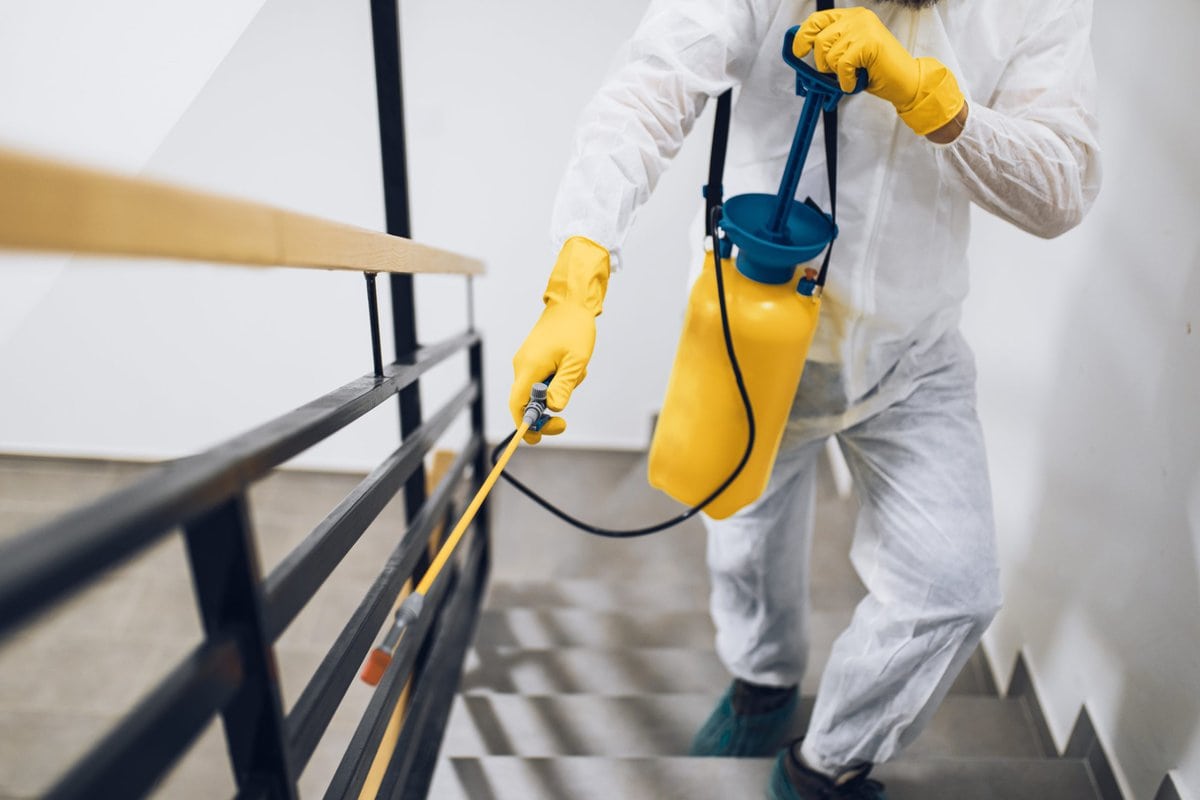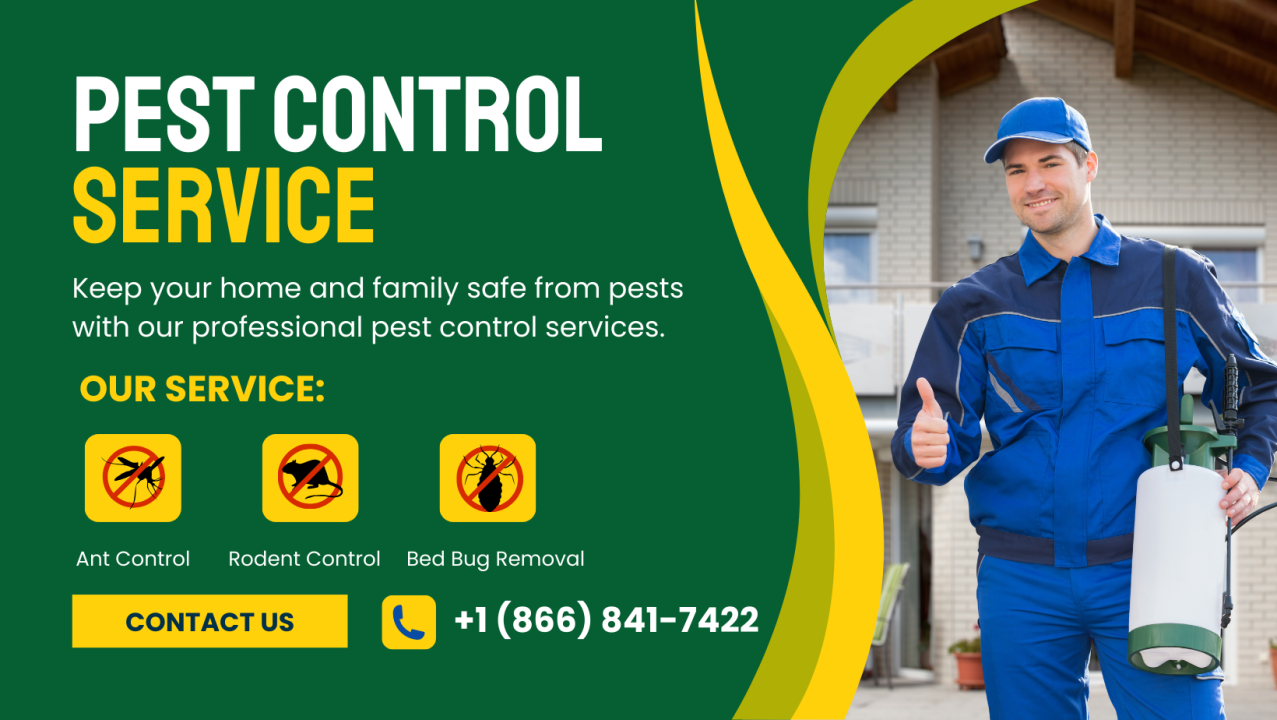Dependable Pest Control Auckland: Professional Extermination and Prevention
Wiki Article
Recognizing Various Kinds Of Insect Control Methods and Their Effectiveness
When thinking about insect control methods, it is essential to recognize the varied approaches readily available and their varying degrees of effectiveness. By exploring the nuances of these insect control approaches, a comprehensive understanding of just how to resolve pest issues can be established.Chemical Parasite Control Methods
Chemical pest control methods play a pivotal role in efficiently taking care of and eradicating pest invasions in various environments. These techniques involve the use of chemical materials to get rid of or discourage bugs such as pests, rats, and weeds. One of the vital advantages of chemical parasite control is its capacity to provide fast and targeted solutions to pest troubles. By utilizing particular chemicals that are created to target particular parasites, this approach can aid stop damage to crops, frameworks, and human health.Nonetheless, it is crucial to think about the potential threats and downsides connected with chemical bug control techniques. Overreliance on chemicals can bring about the growth of pesticide resistance in pests, making them harder to manage in the future. Furthermore, making use of particular chemicals can have dangerous impacts on non-target organisms, the setting, and human health and wellness otherwise applied correctly.

Organic Bug Control Techniques
Making use of natural killers and microorganisms to take care of insect populaces efficiently, organic insect control approaches provide a environment-friendly and lasting method to pest monitoring. By introducing or advertising the activity of organisms that naturally prey on or infect parasites, such as ladybugs for aphid control or certain germs for caterpillar problems, biological control can assist keep pest populations at convenient degrees without the need for synthetic chemicals. This approach is particularly useful for chemical-free farming methods, as it stays clear of using potentially harmful compounds while keeping plant health.
Physical Pest Control Techniques
While biological insect control techniques focus on harnessing all-natural killers and pathogens, physical bug control methods utilize more mechanical and physical obstacles to take care of bug populaces. These techniques are commonly thought about ecologically friendly as they minimize using chemicals. Physical bug control includes techniques such as capturing, utilizing barriers like displays or webs, and literally eliminating insects from the location.Traps are generally utilized in physical bug control to capture and eliminate pests like rodents and pests. An additional physical method is the use of barriers such as screens, nets, or fences to stop parasites from getting in or infesting certain areas.
Natural Pest Control Methods
Integrating natural killers and plant-based repellents is a key method in carrying out reliable all-natural bug control approaches. By motivating the existence of beneficial insects like ladybugs, lacewings, or aggressive mites, gardeners can naturally control pest populations. These predators feed upon common garden insects such as aphids, mites, and caterpillars, helping to maintain a balanced environment without the demand for chemical interventions.
Furthermore, implementing social methods such as crop turning, friend growing, and maintaining proper plant health can likewise enhance the efficiency of natural bug control techniques. These strategies not only aid in stopping pest problems but additionally promote biodiversity and general community strength. By integrating these all-natural methods, people can efficiently take care of insects while decreasing environmental influence.
Integrated Bug Management (IPM) Approach
Applying an Integrated Bug Monitoring (IPM) method is important click here for more for properly controlling parasite populations while decreasing reliance on chemical pesticides. IPM is a thorough and lasting method that combines various parasite control approaches to accomplish long-lasting solutions. This approach concentrates on prevention, control, and tracking to attend to pest problems in an eco-friendly way.IPM incorporates organic, social, physical, and mechanical techniques with the restricted and critical use of pesticides when essential. By stressing proactive procedures such as habitat alteration, biological control, and exclusion, IPM intends to minimize pest populaces and their influence on the community. Regular monitoring is critical in IPM to examine insect levels properly and determine one of the most proper control methods.
One of the crucial benefits of IPM is its capability to lessen the threats connected with extreme pesticide use, such as environmental contamination and damage to non-target organisms. Additionally, IPM promotes a more alternative technique to pest administration by considering the general ecological community characteristics. In general, the IPM approach uses a effective and sustainable option for insect control while advertising environmental duty.
Final Thought
In final thought, recognizing the various types of click for more insect control techniques and their performance is essential in successfully taking care of pest infestations. Integrated Insect Administration (IPM) technique, which incorporates numerous methods for sustainable insect control, is progressively being acknowledged as a environmentally friendly and holistic service.Chemical insect control techniques play a crucial duty in properly taking care of and eradicating pest problems in different atmospheres.Utilizing natural predators and pathogens to take care of pest populaces effectively, organic parasite control approaches use a green and lasting technique to pest administration. By advertising the activity or introducing of microorganisms that normally prey on or infect pests, such as ladybugs for aphid control or particular microorganisms for caterpillar invasions, biological control can help keep bug populations at manageable degrees without the requirement for synthetic chemicals.While organic bug control techniques focus on utilizing all-natural killers and microorganisms, physical insect control approaches utilize mechanical and physical obstacles to handle pest populaces. Integrated Insect Management (IPM) strategy, which integrates numerous techniques for sustainable bug control, is progressively being identified as a environmentally pleasant and holistic remedy.
Report this wiki page